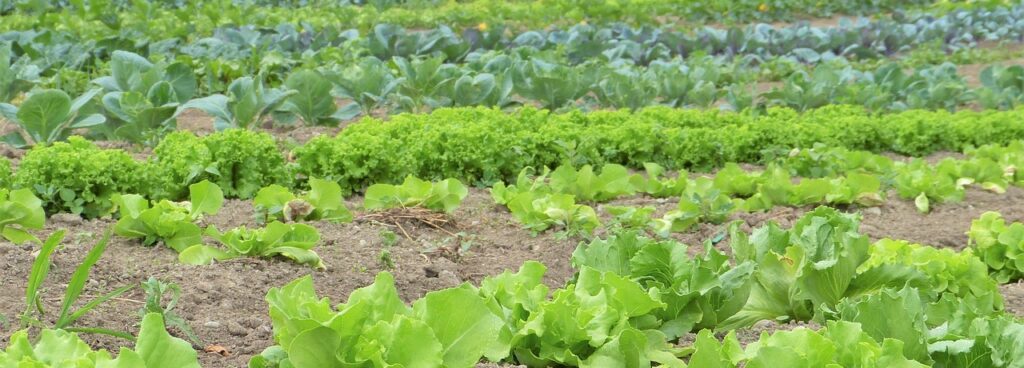Table of Contents
ToggleHow Organic Farming Creates Healthier Lifestyles
Introduction
In recent years, organic farming has become more than just a trend; it’s a movement towards healthier, more sustainable living. As concerns about pesticides, environmental degradation, and poor nutrition rise, more people are turning to organic products for better health. But what exactly makes organic farming a key player in creating healthier lifestyles? In this blog post, we’ll explore how organic farming promotes better health for individuals, communities, and the environment.

What is Organic Farming?
Organic farming is a method of farming that avoids the use of synthetic pesticides, fertilizers, and genetically modified organisms (GMOs). Instead, it relies on natural processes such as crop rotation, composting, and biological pest control to maintain soil health and produce nutritious food. The goal is to produce food in a way that is more sustainable, environmentally friendly, and beneficial for human health.

How Organic Farming Contributes to Healthier Lifestyles
1. Reduced Exposure to Harmful Chemicals
One of the most significant health benefits of organic farming is the reduction in exposure to harmful chemicals. Conventional farming often relies on synthetic pesticides and fertilizers that can linger in the food supply, water sources, and soil. Studies have linked these chemicals to various health problems, including cancer, hormone disruption, and neurological issues. By choosing organic foods, individuals reduce their risk of these harmful exposures, making it easier to maintain a healthier lifestyle.
2. Higher Nutrient Density
Organic produce has been found to contain higher levels of essential nutrients compared to conventionally grown produce. Organic farming methods emphasize soil health, which leads to more nutrient-rich food. Organic fruits and vegetables are often richer in antioxidants, vitamins, and minerals, which are vital for maintaining good health. Consuming organic foods may help boost the immune system, support energy levels, and improve overall well-being.
3. Support for a Healthy Gut Microbiome
Organic foods, especially those that are free from synthetic chemicals, contribute to a healthier gut microbiome. The gut microbiome plays a crucial role in digestion, immunity, and even mental health. Organic farming practices, which often involve the use of compost and natural fertilizers, promote healthier soils and food that is more beneficial for gut health. Consuming organic foods regularly can help foster a diverse and balanced microbiome, supporting long-term health.
4. Better Environmental Health
The health of the environment directly impacts human health. Organic farming practices tend to be less harmful to ecosystems, reducing soil erosion, water contamination, and loss of biodiversity. Healthier ecosystems, in turn, create a cleaner, more sustainable environment for us to live in. By supporting organic farming, we help ensure a future where both people and nature thrive in harmony.
5. Reduced Antibiotic Resistance
Conventional farming often relies on the use of antibiotics to promote growth and prevent disease in animals. This practice has led to the rise of antibiotic-resistant bacteria, which pose a significant threat to human health. Organic farming prohibits the use of antibiotics and hormones in livestock, leading to healthier animals and less exposure to harmful bacteria for consumers. By choosing organic animal products, individuals reduce their risk of encountering antibiotic-resistant pathogens.

Why Organic Farming is Important for Future Generations
Organic farming is not just about improving health today; it’s about ensuring a healthier future for generations to come. The sustainability and environmental benefits of organic farming play a critical role in preserving the planet’s resources. With global populations increasing and environmental challenges rising, organic farming provides a long-term solution to creating a healthier, more sustainable world.
Conclusion
Organic farming isn’t just a choice for the environmentally conscious; it’s a path toward a healthier lifestyle. By choosing organic products, individuals can reduce their exposure to harmful chemicals, enjoy more nutritious food, and contribute to a cleaner, healthier environment. Whether you’re looking to boost your immune system, support sustainable agriculture, or simply enjoy better food, organic farming is an essential step toward a healthier future.
FAQs
Eating organic food reduces exposure to harmful chemicals like pesticides and synthetic fertilizers. Organic produce also tends to be more nutrient-dense, providing more vitamins, minerals, and antioxidants, which are essential for maintaining good health.
Organic farming practices reduce soil erosion, improve water quality, and help maintain biodiversity. By avoiding synthetic chemicals, organic farming also reduces the pollution of nearby ecosystems, helping to create a more sustainable environment.
Yes, organic food is often more expensive due to the higher costs associated with organic farming practices. However, many people find that the health benefits and the positive impact on the environment make it a worthwhile investment.
Yes, organic farming prohibits the use of antibiotics and hormones in livestock. This helps reduce the spread of antibiotic-resistant bacteria, which is a growing concern in conventional farming systems that rely on antibiotics for growth and disease prevention.
Organic food is generally considered healthier because it is free from synthetic chemicals and often contains higher levels of nutrients. Additionally, organic farming practices promote soil health, which translates into better-quality food for consumers.